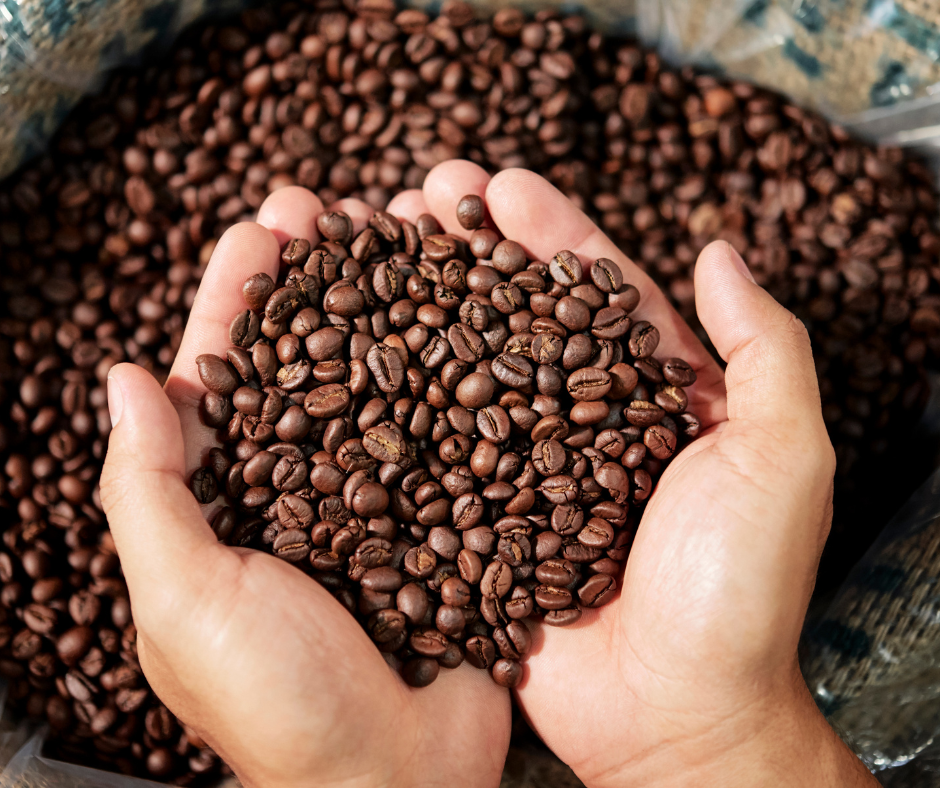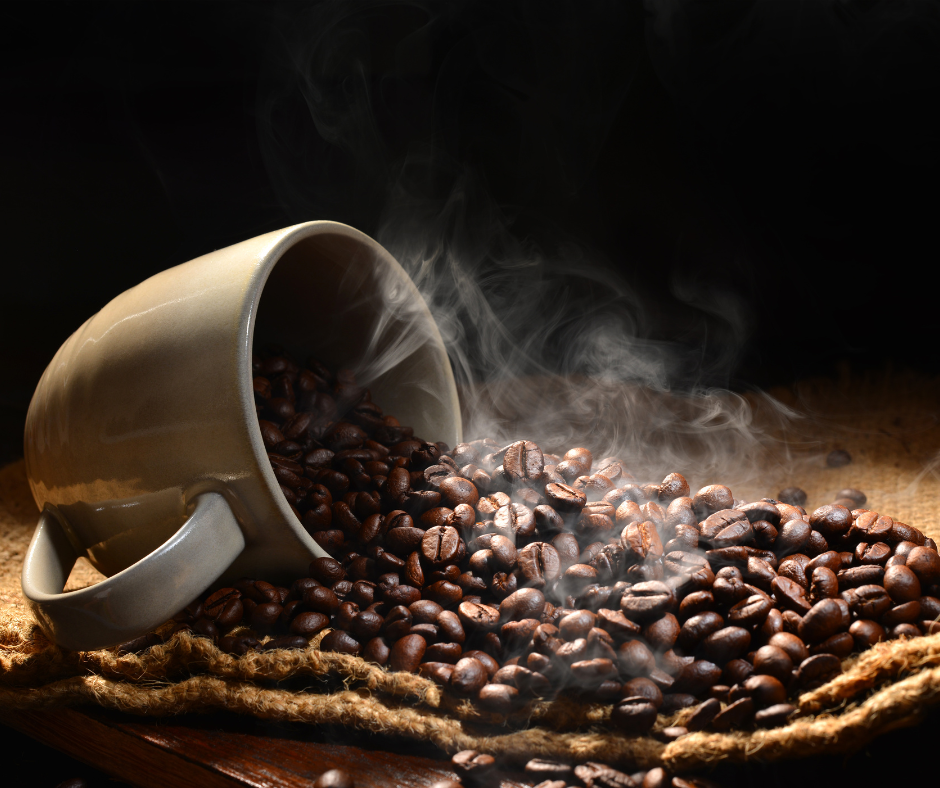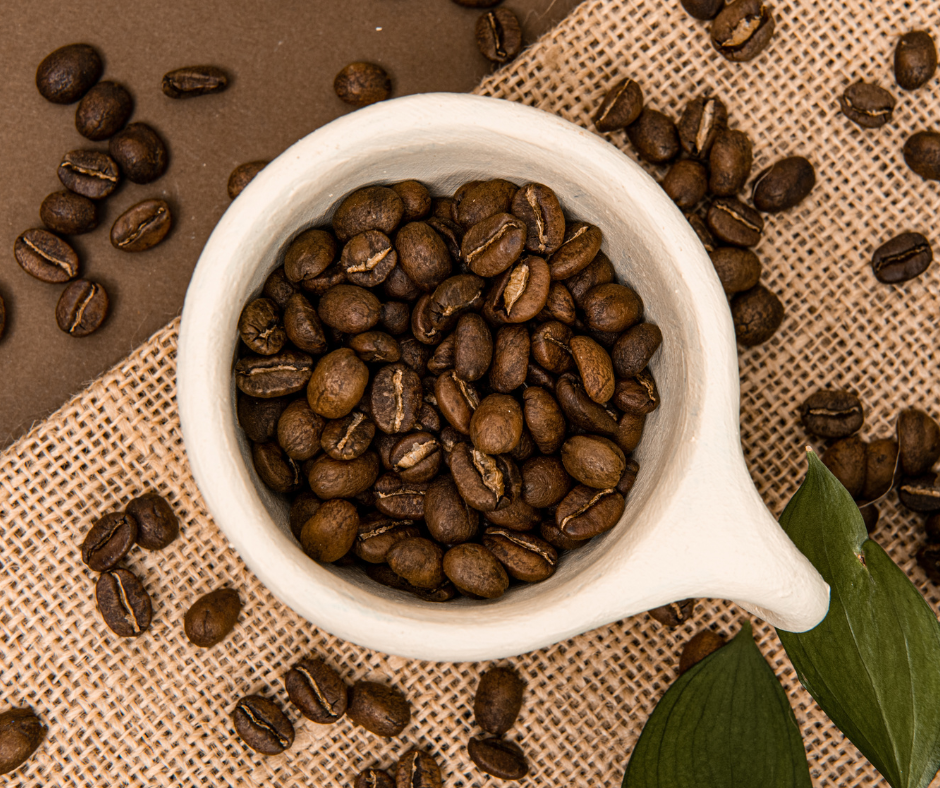Introduction
Coffee lovers always look for new and exciting ways to enjoy their favorite caffeinated beverage. One trend gaining popularity is the consumption of edible coffee beans. But Can You Eat Coffee Beans? Let’s explore the world of edible coffee beans and find out!
What Are Coffee Beans?
Coffee beans are the seeds of the Coffea plant, which are found inside the fruit known as the coffee cherry. These beans are harvested, processed, and roasted before being ground and brewed to make coffee. They contain a high concentration of caffeine, which is responsible for the stimulating effects of coffee.
The Rise Of The Edible Coffee Bean Trend
In recent years, the edible coffee bean trend has increased. People are discovering coffee beans’ unique flavors and textures when eaten raw. Some even compare it to the experience of eating dark chocolate or nuts. Edible coffee beans are often coated in chocolate or flavored coatings to enhance their taste and make them more palatable.
There are also other uses for edible coffee beans, such as inclusion in desserts, energy bars, and even as a topping for ice cream. The versatility of coffee beans as an ingredient opens up a new world of culinary experimentation.
Understanding The Caffeine Content In Coffee Beans
One of the main concerns with consuming coffee beans is the high caffeine content. Coffee beans contain caffeine, which is a natural stimulant. The exact caffeine content can vary depending on the variety of coffee beans and how it is roasted.
It’s important to note that consuming coffee beans in their raw form will result in a much higher caffeine concentration than a cup of brewed coffee. Eating too many coffee beans can lead to unpleasant side effects, such as increased heart rate, jitteriness, and difficulty sleeping.
It is recommended to consume coffee beans in moderation and be aware of your caffeine tolerance. If you’re sensitive to caffeine or have any underlying health conditions, it’s best to consult with a healthcare professional before adding coffee beans to your diet.
In conclusion, while eating coffee beans can provide a unique and flavorful experience, it’s important to consume them in moderation and be mindful of their caffeine content. As with any food or beverage, it’s always best to listen to your body and make choices that align with your health and well-being. Happy coffee bean snacking!
Can You Eat Coffee Beans?
So, Can You Eat Coffee Beans? The Answer Is Yes, But Moderation Is Key. If you’re a coffee lover, you may have wondered whether it’s possible to munch on coffee beans as a snack. The answer is yes, you can eat coffee beans, but it’s important to do so in moderation.
Coffee beans are edible and can provide a unique taste experience. Some people enjoy the bitter, intense flavor of eating coffee beans whole. However, it’s worth noting that the taste can be quite strong and may not be to everyone’s liking. If you try it, start with small amounts to see if it suits your palate.
Potential Health Benefits Of Consuming Coffee Beans
Interestingly, eating coffee beans may offer some potential health benefits. Coffee beans contain antioxidants, which can help protect the body against oxidative stress and inflammation. Additionally, coffee is known for its stimulating properties due to its high caffeine content. Consuming coffee beans may provide a similar boost of energy and alertness.
However, it’s important to note that coffee beans are a concentrated source of caffeine. Too much caffeine can lead to jitters, increased heart rate, and disrupted sleep. Consuming coffee beans in moderation is essential, and being mindful of your overall caffeine intake, including from other sources like coffee or energy drinks.
Risks And Side Effects Of Eating Coffee Beans
While there are potential benefits, it’s crucial to be aware of coffee beans’ risks and side effects. As mentioned before, caffeine content is a key consideration. Eating too many coffee beans can result in caffeine overdose symptoms such as restlessness, anxiety, digestive issues, and even heart palpitations.
Furthermore, coffee beans may be challenging to digest, especially when consumed in large quantities. This can lead to discomfort, such as stomach pain and bloating. If you have sensitive stomach or digestive issues, it’s best to exercise caution and limit your intake of whole coffee beans.
In conclusion, while it is possible to eat coffee beans, it’s important to do so in moderation. Enjoying a few beans as a tasty snack can be a unique experience, but excessive consumption can have adverse effects. As with any dietary choice, listening to your body and deciding what works best for you is best.
The Science Behind Coffee Beans
How Coffee Beans Are Roasted?
Before exploring whether coffee beans are edible, it’s essential to understand the process behind coffee bean roasting. Coffee beans start their journey as seeds nestled inside the red berries of the Coffea plant. These berries are carefully harvested and processed to extract the seeds.
Once extracted, the seeds, or coffee beans, are roasted. The beans are heated to specific temperatures during roasting to bring out their distinct flavors and aromas. The length of the roasting process determines the bean’s darkness and flavor profile, ranging from light to dark roast.
The Impact Of Roasting On Caffeine Levels
Roasting plays a significant role not only in flavor development but also in caffeine content. Contrary to popular belief, dark roast coffee beans do not necessarily contain more caffeine than light roast beans. The longer the beans are roasted, the more caffeine is lost.
During the roasting process, caffeine molecules break down, resulting in a decrease in overall caffeine content. Therefore, if you’re seeking a stronger caffeine kick, you might opt for lighter roast coffee beans.
Different Types Of Coffee Beans And Their Flavors
Coffee beans come in various types, each offering a unique flavor profile. The most common types are Arabica and Robusta beans. Arabica beans are known for their delicate flavors, fruity notes, and pleasant acidity. They are often considered superior in taste and used in specialty coffees. On the other hand, Robusta beans have a stronger and more bitter taste, providing a higher caffeine content but with less complexity in flavor.
Other less common varieties include Liberica and Excelsa beans, which offer distinct flavor profiles that might appeal to adventurous coffee enthusiasts.
In conclusion, coffee beans are technically edible, but they are typically enjoyed in a brewed form after being ground and combined with hot water. However, consuming whole coffee beans without grinding them can be challenging due to their hardness and intense flavor. While it’s not recommended to eat coffee beans as a snack, exploring different types of coffee beans and their flavors can be an enjoyable experience for coffee lovers. Remember to savor your coffee responsibly and in moderation, as caffeine levels can vary based on the type of bean and the brewing method.
Ways To Enjoy Coffee Beans
Eating Raw Coffee Beans
Can you eat coffee beans? The answer is yes, you can! Consuming raw coffee beans is gaining popularity among coffee enthusiasts. Raw coffee beans are unroasted and have a unique taste that can be described as grassy or earthy. However, the flavor can vary depending on the origin of the beans. It’s important to note that raw coffee beans are quite hard and can be tough to chew, so it’s recommended to grind them into a powder or soak them overnight to soften them before consumption.
Roasted Coffee Beans As A Snack
Roasted coffee beans are the most common way people enjoy this edible coffee trend. These beans go through roasting, bringing out the rich flavors and aromas we associate with coffee. Like nuts, roasted coffee beans can be served as a snack on their own, providing a crunchy texture and a burst of coffee flavor. Watching your portion size is important since roasted coffee beans are high in caffeine.
Chocolate-covered Coffee Beans And Other Variations
Chocolate-covered coffee beans are a delicious treat for those with a sweet tooth. The combination of the bitter coffee and the sweetness of the chocolate creates a balance of flavors that many people enjoy. Additionally, there are variations of coffee beans coated in flavored chocolates, such as mint, caramel, or even cinnamon. These variations add an extra layer of taste to the coffee bean experience.
It’s worth noting that while coffee beans are safe to consume, moderation is key due to their high caffeine content. Eating too many coffee beans can lead to unpleasant side effects such as jitters, increased heart rate, or trouble sleeping. It’s always best to consult a healthcare professional with concerns or pre-existing health conditions.
In conclusion, the edible coffee bean trend offers a unique and flavorful way to enjoy coffee beyond the traditional brewing methods. Whether you prefer raw coffee beans, roasted beans as a snack, or chocolate-covered variations, there are various ways to savor the rich flavors of coffee beans. Just remember to consume them in moderation and enjoy this culinary experience responsibly.
The Coffee Bean Industry
The consumption of coffee beans has a long and storied history, dating back centuries. While most people are familiar with brewing coffee using ground beans or pods, there is a growing trend of consuming coffee beans as a snack. But Can You Eat Coffee Beans?
Historical Consumption Of Coffee Beans
Throughout history, coffee beans have primarily been used for brewing coffee. The process of grinding and extracting the flavors and caffeine from the beans using hot water is what most people are familiar with. However, there have been instances of people eating coffee beans as a pick-me-up or to enjoy the unique flavors and textures. In some cultures, it is even traditional to chew on coffee beans to combat fatigue or increase alertness.
Current Trends And Market Demand
In recent years, snacking on coffee beans has gained popularity. People are drawn to coffee beans’ bold and intense flavor profile and the caffeine boost they provide. This has led to increased availability of edible coffee beans online and in specialty stores. Some companies even offer flavored coffee beans, adding a variety of tastes to the snacking experience.
Sustainability And Ethical Considerations
While the edible coffee bean trend is growing, it is important to consider the sustainability and ethical aspects of consuming coffee beans in this way. Coffee production is often associated with environmental and social challenges, including deforestation and labor exploitation. It is crucial to support companies prioritizing sustainable and ethical practices, such as sourcing beans from fair-trade farms or using organic production methods.
As with any food or beverage, consuming coffee beans in moderation is also important. The high caffeine content can adversely affect individuals sensitive to caffeine or consuming excessive amounts. It is recommended to consult with a healthcare professional before incorporating coffee beans into your diet, especially if you have any underlying health conditions.
In conclusion, while eating coffee beans may seem unconventional, it is a trend gaining traction in the coffee industry. Whether you choose to snack on coffee beans for the flavor or the caffeine boost, it is essential to consider your choices’ sustainability and ethical aspects. With proper moderation and awareness, enjoying coffee beans as a snack can be a unique and enjoyable experience.
FAQ: Can You Eat Coffee Beans?
Q: Are coffee beans edible?
A: Yes, coffee beans are edible but usually roasted before consumption to enhance their flavor.
Q: What is the edible coffee bean trend?
A: The edible coffee bean trend refers to the rising popularity of consuming coffee beans in their raw or unroasted form.
Q: Why are people eating coffee beans?
A: People eat coffee beans for various reasons, including their caffeine content, unique flavor profile, and potential health benefits.
Q: Is it safe to eat coffee beans?
A: Yes, it is generally safe to eat coffee beans in moderate amounts. However, consuming large quantities may lead to negative effects due to their high caffeine content.
Q: Do coffee beans taste good when eaten raw?
A: Raw coffee beans have a strong and bitter taste that is quite different from the flavor of a brewed cup of coffee. Some people enjoy the taste, while others find it unpleasant.
Q: How do you eat coffee beans?
A: Coffee beans can be eaten straight from the bag, added to recipes, or ground into a powder and used as a flavoring.
Q: Are there any health benefits to eating coffee beans?
A: Coffee beans contain antioxidants and other bioactive compounds that can have certain health benefits, such as improved cognitive function and increased metabolism.
Q: Can eating coffee beans replace drinking coffee?
A: Eating coffee beans cannot fully replace drinking coffee, as the brewing process releases additional flavor compounds and changes the overall taste and experience.
Q: Are there any risks associated with eating coffee beans?
A: The main risk associated with eating coffee beans is consuming too much caffeine, which can lead to side effects such as nervousness, insomnia, and increased heart rate.
Q: Where can I buy edible coffee beans?
A: Edible coffee beans can often be found at specialty coffee shops, online retailers, and health food stores.
Conclusion
Can You Eat Coffee Beans? Yes, With Caution. For coffee lovers and adventurous foodies, eating coffee beans may seem intriguing. While it is possible to eat coffee beans, it is important to exercise caution due to the high caffeine content and potential risks involved.
Exploring The Potential Benefits And Risks
Coffee beans offer several potential benefits when consumed in moderation. They contain antioxidants that can help protect against cell damage and may have anti-inflammatory properties. Some people also claim that coffee beans can boost energy levels and improve focus. However, it is crucial to note that the benefits of coffee beans are not well-studied and may vary from person to person.
On the other hand, there are risks associated with consuming coffee beans. The high caffeine content can lead to adverse effects such as increased heart rate, anxiety, insomnia, and digestive issues. Individuals with caffeine sensitivity, certain medical conditions, or pregnant women should avoid eating coffee beans altogether.
Recommendations For Incorporating Coffee Beans Into Your Diet Responsibly
If you still want to try eating coffee beans, here are some recommendations to do so responsibly:
- Choose high-quality beans: Opt for beans that are specifically labeled as edible. These are usually roasted to a level that enhances their flavor and makes them safe for consumption.
- Limit your intake: Moderation is key. It is recommended to start with a small amount, such as one or two beans, and assess your tolerance before consuming more. Remember that coffee beans are highly concentrated sources of caffeine.
- Pair with food or beverages: Eating coffee beans alongside a meal or with a beverage can help mitigate the potential negative effects and provide a more enjoyable experience.
- Consult a healthcare provider: If you have any underlying health conditions or concerns, it is best to consult a healthcare professional before incorporating coffee beans into your diet.
In conclusion, while it is possible to eat coffee beans, it is important to proceed cautiously and consider the potential risks and benefits. Everyone’s tolerance and reaction to caffeine vary, so it is vital to listen to your body and make informed choices when incorporating coffee beans into your diet.

Deb Carlson at Crosslake Coffee: Join Deb at Crosslake Coffee for a delightful blend of community, caffeine, and creativity. Discover the cozy ambiance and warm hospitality that make this local coffee shop a beloved gathering spot. From expertly crafted espresso drinks to mouthwatering pastries, Deb invites you to savor every sip and bite. Stay connected with the latest updates on specials, events, and live music performances by following Deb Carlson at Crosslake Coffee on social media. Embrace the vibrant online community and share your love for great coffee and good company with fellow enthusiasts. Don’t miss out on a moment of the Crosslake Coffee experience – connect with Deb on social media today.



